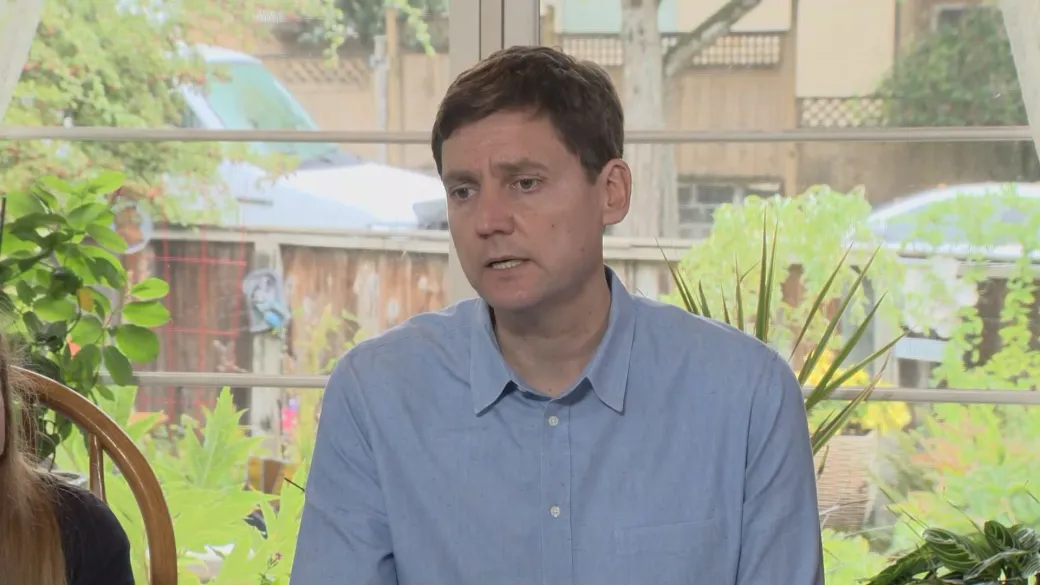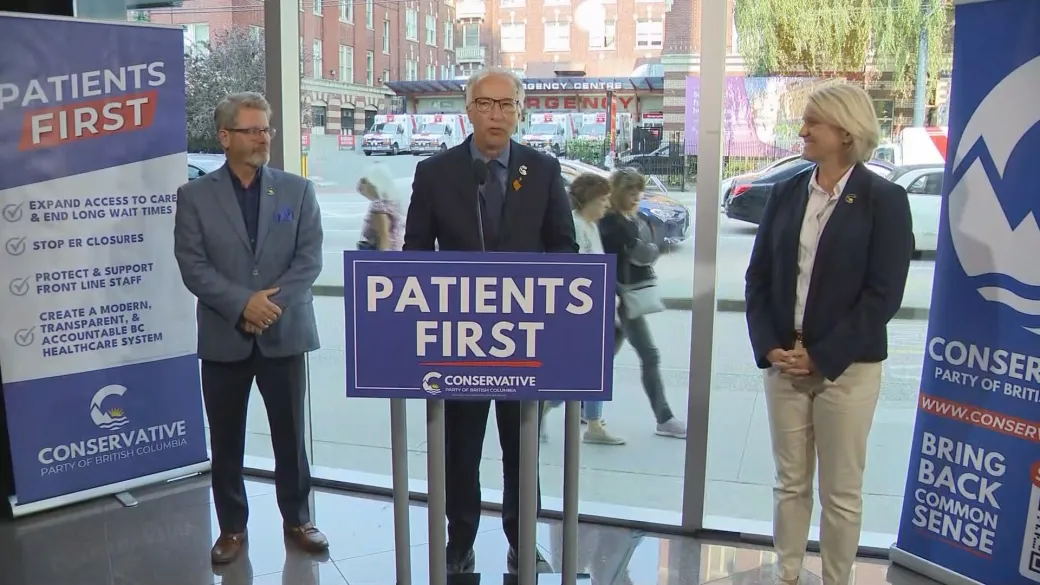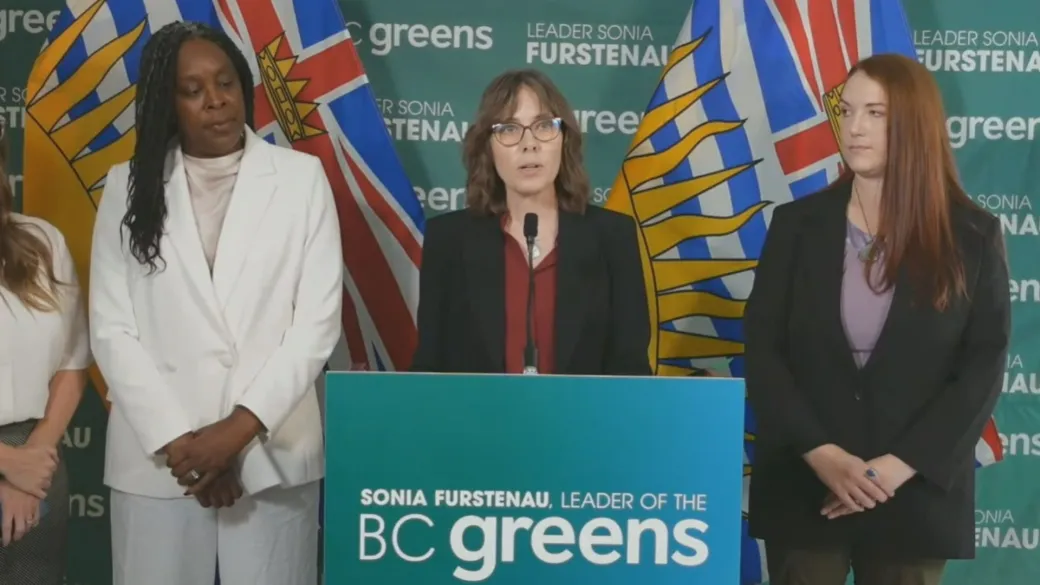
B.C.’s provincial election is just four days away, and recent polling shows that health care has risen to take priority as British Columbians’ most pressing campaign issue.

Global News sat down with the leaders of B.C.’s three major parties to ask them what they see as the biggest challenges in the health-care system and what they will do to solve them.

Many people are frustrated with long waits for care. What do you say to the public who hears you talk about progress but have not seen it personally in their situation?
“I think when you’re dealing with these things any minute is too long, any day on a wait-list is too long.
What I can assure people is we are finally starting to make progress on these issues. We connected 250,000 British Columbians to a family doctor last year. For the first time in 20 years, fewer British Columbians were looking for a family doctor, the number didn’t go up. It actually went down.
And we can see a future by the end of 2025, when everyone on the Health Connect registry will have access to a family doctor or nurse practitioner. By bringing in these health-care professionals, by building out our hospitals, we are making progress on these issues.
The stubborn issues of ER closures continue to be a problem. And addressing red tape so doctors and nurses can move more easily between health authorities is going to be a part of that solution. Any minute is too long, I know any closure is too many, and we can’t stop until the job is done.
What the NDP is promising on health care:

What is broken in B.C.’s health-care system and how will you fix it? How will you ensure staffing in facilities outside the public system?
The model that we have in British Columbia is the second most expensive in the 30 most developed nations in the world, and yet we have the second worst outcomes. Most importantly, when patients are trying to access health care we have closed ERs, we have ERs that are eight, 10, 12 hours of wait time. Family doctors is a huge issue. Waiting for specialists, the time and delay, and people having to be sent down to the States.
This is all a symptom of a health-care system that is collapsing. So we have to be brave enough to say what we are doing is not working, so let’s look at what is working in the world.
Universal health care, just like we have, but it is delivered by both the government and non-government agencies, and it provides for a much better range of services in a more timely way.
I will give you an example. This individual has retired, but he was the top vascular surgeon in the province. He would get eight hours of surgery time a week; that was all he would get because that was all the system would allow. He could easily be doing 20, 30, 40 hours a week. And he would show up for his shift, often it would be 8 in the morning and often there would be delays sometimes as late as 9 or even 9:30, and by 1:30 in the afternoon…. It’s a very inefficient system.”
What the BC Conservatives are promising on health care:

Where do you see the pressure points in the health-care system, and what would you like to see to fix them?
First of all, I’d like to see community health centres in every community in B.C. That, if you move somewhere in B.C., just like your kids are attached to a public school, you are attached to a community health centre.
And it’s team-based care, doctors, nurse practitioners, nurses, social workers, psychologists, allied health professionals, you can get your blood work done you can get your X-rays done. Everything is in one place, and we create a much more wraparound primary health-care system than what we have right now.
It is terrible right now that so many people in B.C., the only access they have to health-care is in an ER. I talked to somebody the other night who had to get basically primary care and spend eight hours waiting in an ER to be seen by a doctor.
It’s the most expensive approach and it’s the most inefficient, and it leaves people waiting until often too late to seek health care.
What the BC Greens are promising on health care:
— with files from The Canadian Press